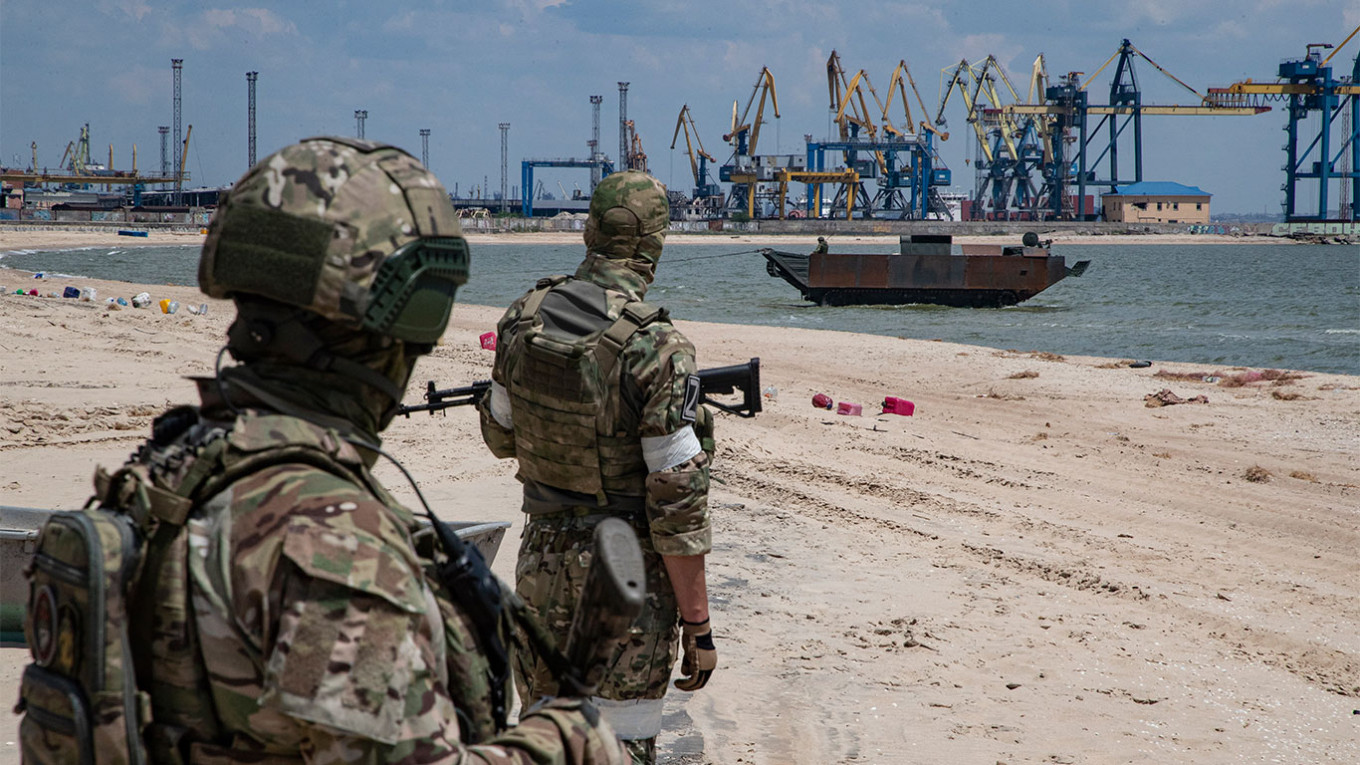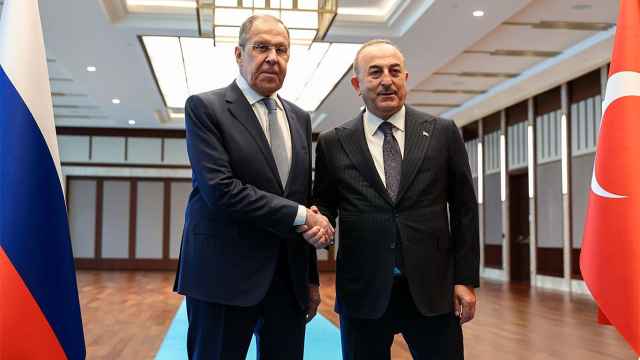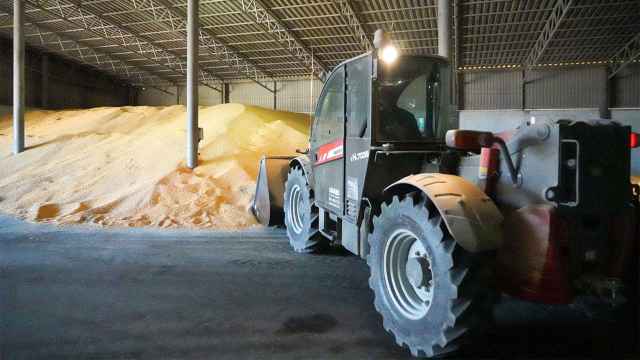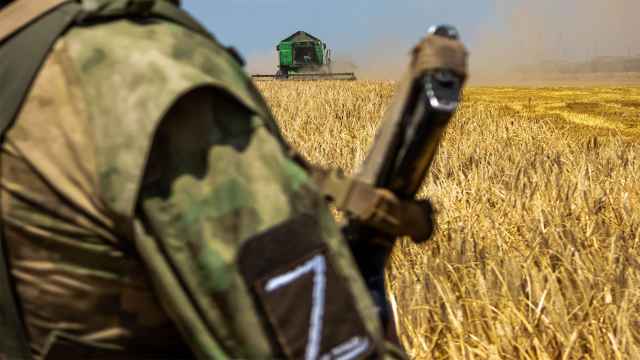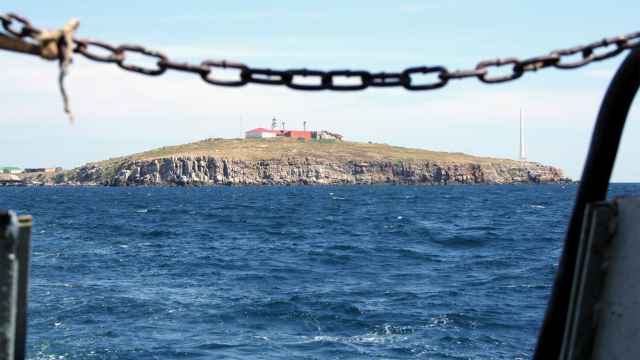Satellite images and GPS data indicate that Russia could be exporting grain smuggled out of occupied Ukrainian territory, investigations by the BBC and the Financial Times have revealed.
Russia has been accused by Western powers of using food as a weapon in its war with Ukraine by targeting the country’s grain storage facilities and blockading its Black Sea exports.
The Financial Times said its analysis of satellite photographs and port records indicated that Russia had exported around 140,000 tons of grain in eight shipments from annexed Crimea to Syria and Turkey in May.
The figures mark an unseasonal increase in the volume of grain exports at the sanctioned Crimean port compared with previous years.
The publication also tracked activity consistent with the smuggling of looted goods, such as vessels switching off their transponders in violation of international law, using ship-to-ship transfers at sea and forging paperwork to obscure the origins of its cargo.
It stressed, however, that there was no hard evidence that the tracked vessels carried grain stolen from occupied Ukrainian territories.
In a similar investigation published earlier this week, the BBC monitored stolen grain trucks fitted with GPS trackers as they traveled to Crimea earlier in June.
Satellite images showed that one grain terminal in the Crimean port of Sevastopol processed far higher levels of cargo throughout June than in previous years, the BBC reported.
A separate investigation by BBC’s Russian and Ukrainian services revealed that Ukrainian farmers in occupied territories had also been forced to sell grain to Russia at knockdown prices.
Moscow-installed authorities in occupied Ukrainian territories announced earlier in June that rail cars carrying Ukrainian grain from the area had departed for Crimea.
But the Kremlin has repeatedly denied smuggling grain out of captured Ukrainian territories and has called on Western governments to lift economic sanctions against Moscow in order for the Russian military to lift its Black Sea blockade.
Russia and Ukraine accounted for more than 25% of international grain exports in 2021, according to the UN Food and Agricultural Organization.
Millions of tons of stranded grain have fueled concerns about hunger and food prices in import-dependent countries in Africa and the Middle East.
A Message from The Moscow Times:
Dear readers,
We are facing unprecedented challenges. Russia's Prosecutor General's Office has designated The Moscow Times as an "undesirable" organization, criminalizing our work and putting our staff at risk of prosecution. This follows our earlier unjust labeling as a "foreign agent."
These actions are direct attempts to silence independent journalism in Russia. The authorities claim our work "discredits the decisions of the Russian leadership." We see things differently: we strive to provide accurate, unbiased reporting on Russia.
We, the journalists of The Moscow Times, refuse to be silenced. But to continue our work, we need your help.
Your support, no matter how small, makes a world of difference. If you can, please support us monthly starting from just $2. It's quick to set up, and every contribution makes a significant impact.
By supporting The Moscow Times, you're defending open, independent journalism in the face of repression. Thank you for standing with us.
Remind me later.


